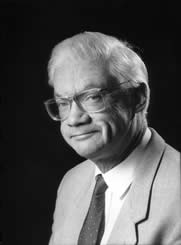

|

|
IN MEMORIAM
Donald Robert Kaplan
Professor of Plant Biology, Emeritus
UC Berkeley, UC Irvine
1938 – 2007
Donald R. Kaplan, professor emeritus of plant biology, at the University of California, Berkeley, died on Monday, December 17, 2007, from complications of pneumonia at Alta Bates Medical Center in Berkeley, California.
Don Kaplan was born in Chicago on January 17, 1938. His father was a jazz musician and his mother was a psychiatric nurse. Kaplan attended Northwestern University and graduated Phi Beta Kappa with a bachelor’s degree in biology in 1960. He continued his education at UC Berkeley and studied with Adriance Foster for his Ph.D., which he earned in 1965. After National Science Foundation-sponsored postdoctoral work at the Royal Botanic Gardens, Kew, England, Kaplan joined the newly established University of California, Irvine campus as an assistant professor of organismic biology in 1965, and was one of its founding faculty members. After the retirement of his major professor, Dr. Foster, he returned to UC Berkeley in 1968 as an associate professor in the Department of Botany. Kaplan was promoted to professor in 1978, and moved to the Department of Plant and Microbial Biology during reorganization of the biological sciences. He retired in 2004.
As a plant morphologist, Don Kaplan had a unique, European perspective on plant form. Using key concepts and first principles, he approached his research in a strictly analytical way. He was most interested in fundamental structural and developmental commonalities that underpin plant form across different major taxa. Kaplan’s publications spanned the algae, bryophytes, ferns, gymnosperms, and angiosperms.
Don Kaplan’s research accomplishments are too many to enumerate. He maintained a long-standing interest in mechanisms of leaf development. Highlights of this interest include: dispelling the “phyllode” theory of leaf development in monocotyledons, analyzing development of true phyllodes of Acacia, studying development of the “rachis” leaves in the Apiaceae, determining the mechanism of plication in palm leaves, and deciphering the mechanism of perforation in Monstera leaves. A second major research focus was the relationship of cell and organism in vascular plants. Kaplan’s concepts in this arena have had a major impact on studies in molecular biology/genetics. The mechanisms underlying his ideas are not yet completely understood, but he set the stage for future investigations. Finally, he was also interested in the history of plant morphology, especially in the people who established the basic principles and concepts of the field as he practiced it, such as Goethe, Hofmeister, Goebel, and Troll.
Don Kaplan’s research accomplishments were well recognized by his peers and resulted in many awards. Among these were the Alexander von Humboldt Distinguished Senior U.S. Scientist Award (1988-89), a Guggenheim Fellowship (1987-88), fellow of the California Academy of Sciences (1982), the Botanical Society Merit Award (1984), the Botanical Society of America's Jeanette Siron Pelton Award (1989) and Centennial Award (2006), Miller Research Professorship (1975-76), and Sigma Xi National Lecturer (1995-97).
Don Kaplan approached teaching with the same energy and dedication that he used for research. During his years at UC Berkeley, he taught a number of different undergraduate courses including General Botany and Plant Anatomy, but his great love was his Principles of Plant Morphology course. In the first half of this course, he presented his unique perspectives on commonalities and divergences of plant form across all taxa, and in the second half of the course he showed the students many unusual plants (parasitic, epiphytic, aquatic, desert, salt marsh, etc.) and described how their morphological adaptations and divergent life strategies were adaptive in these extreme environments. Don Kaplan sparked strong botanical interests in generations of Berkeley undergraduates who took the class. The campus recognized him by awarding him the Distinguished Teaching Award in 1976. The Botanical Society of America awarded him the Charles Edwin Bessey Award for excellence in botanical teaching in 2005.
Don Kaplan’s approach to graduate education was novel, especially when compared to modern practices. He allowed students to pick their own projects that were not directly related to his own research projects. His graduate students thus determined their own approach and techniques to investigate their hypotheses. Moreover, Kaplan did not require his students to copublish with him. As a result, the dissertations of his students were as different and unique as the personalities and interests of the students themselves. He had many Ph.D. students over the years, including: Dan Franck, Ann Hirsch, Dan Walker, Judith Croxdale (deceased), Darleen DeMason, Jennifer Richards, George Ellmore, Richard Mueller, Jeffrey White, Pam Diggle, Cynthia Jones, Ned Friedman, Paul Groff, William Sanders, and Carol Wilson.
In addition to botany, Don Kaplan had many other interests, which he pursued with as much intensity. Among them were photography, railroads, classical music, and movies. Kaplan enjoyed doing all his own photography and commonly used large format sheet film and Ansel Adams’s zone system. He authored several articles on railroads and a book, entitled Duneland Electric, about the electric railway that ran from Chicago along the south shore of Lake Michigan. Kaplan and his wife, Dorothy, had season tickets to the San Francisco Opera for 30 years and had an extensive music library. Among his favorite movies were all the Marx Brothers’ movies and George Lucas’s Star Wars series.
Don Kaplan is survived by his wife Dorothy, of Kensington, California; two sons, Andrew, a children’s librarian in Las Vegas, Nevada, and Timothy, of Pleasant Hill, California, a Berkeley police officer; and a sister, Barbara Goldstein of Salt Lake City, Utah.
Darleen A. DeMason
Ann M. Hirsch